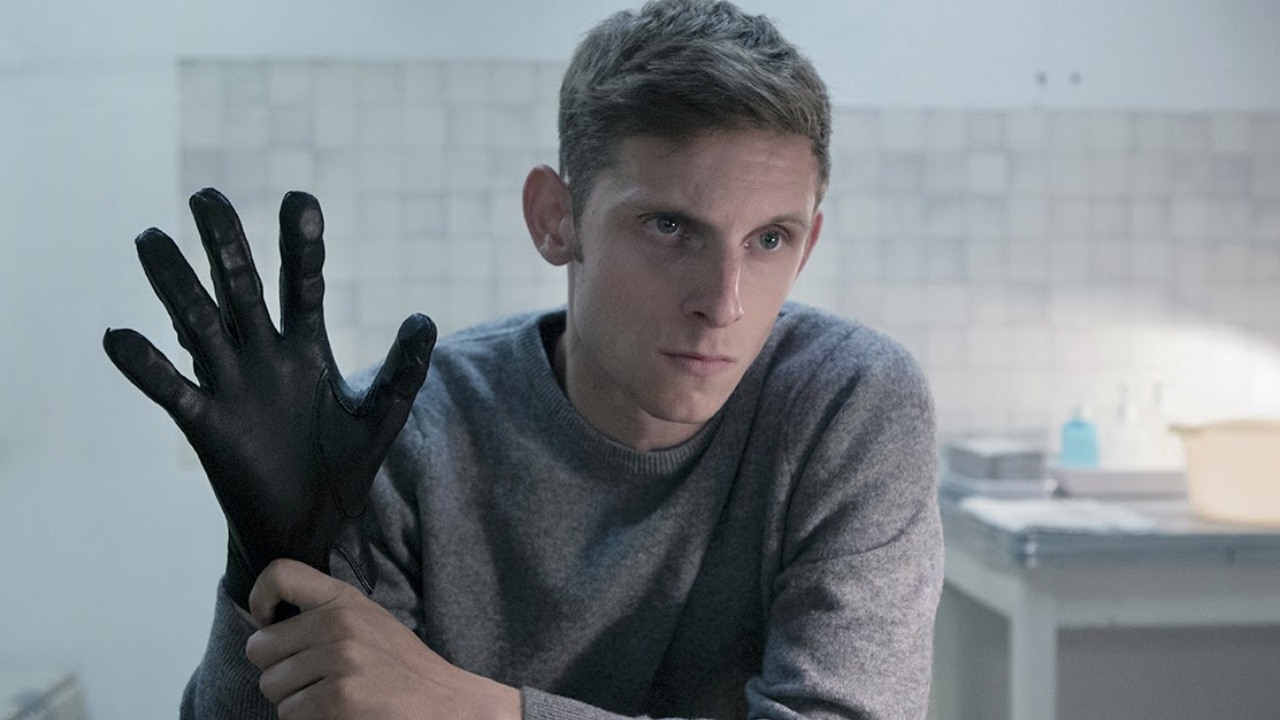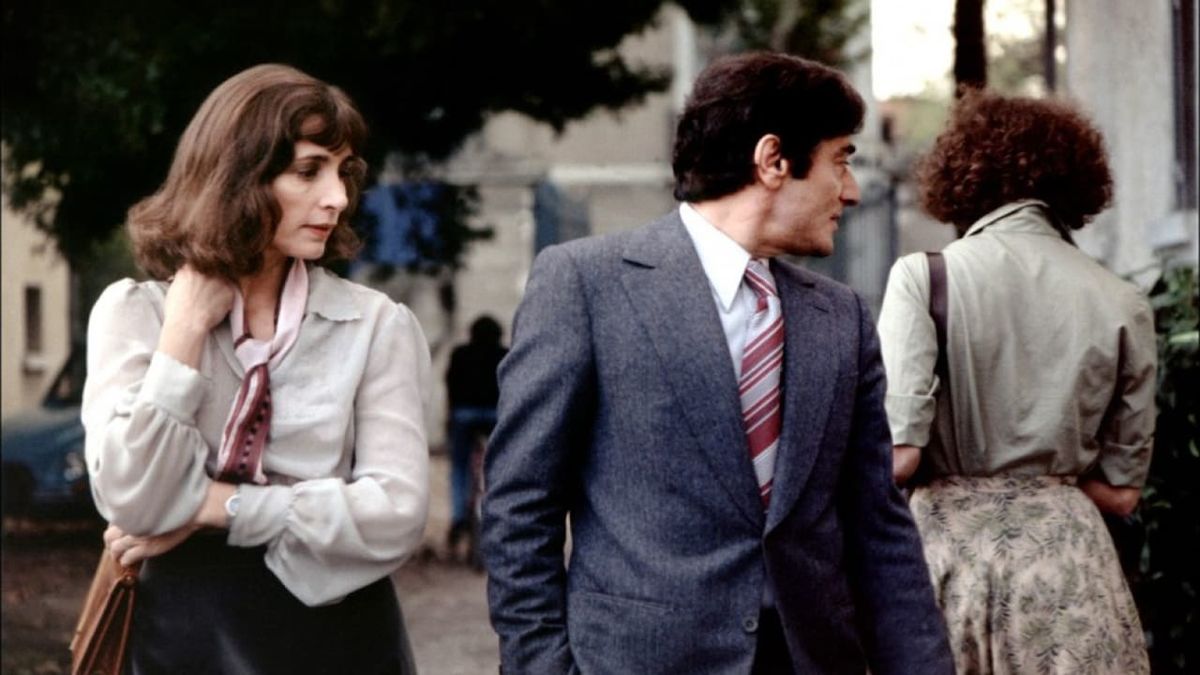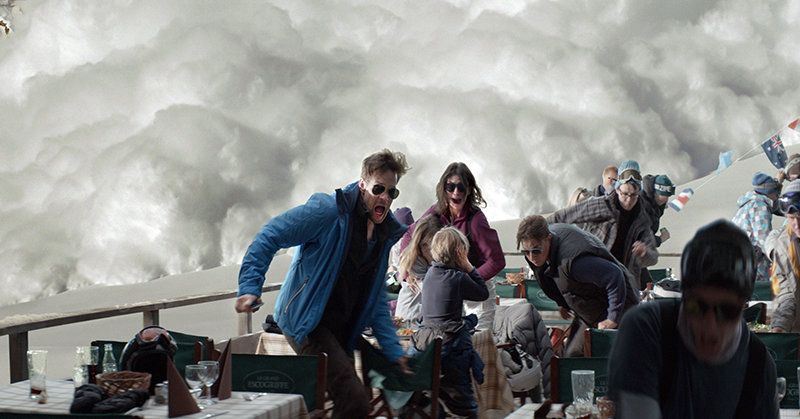
All throughout life, an individual love is seen as one of the most important things to experience. Whether it be via an spiritual connection with God, or in the conventional way by getting married and forming a family, love and its expressions have seemed to be in the center of our concerns since the dawn of humankind. We all expect to love to the fullest, although that only happens in escapist films or naïve songs and poems.
When we are little, we often develop an image of ideal love – a love that is selfless and perfect, which will be the source of great joy and utter happiness. But then we grow up, and as we gather more experience we realize that in real life, love something completely different; it’s something that is incomplete and far from ideal, and we realize with great grief that love will not solve our problems nor it will bring us never-ending joy. We hopelessly realize love doesn’t just happen, that it is something that requires effort and involvement.
Here I present a selection of films that deal with non-idealized versions of love, where we will see people who love each other who are unable to be together and happy because of the political landscape in their country. We will see adolescent taking their first steps into the otherness, we will see how experiences we usually relate to love such as sex can be expressed in very different ways, and many more.
1. The Man Who Loved Women (Francois Truffaut, 1977)

“The Man Who Loved Women” is a not well-known film by Francois Truffaut, the legendary father of the French New Wave and the mind behind films such as “The 400 Blows” and “La Nuit Americaine.” While “The Man Who Loved Woman” might seem obsolete in the way it portrays woman, it still a fun and enjoyable film. It follows Bertrand Morane, en engineer in his 40s who has an obsession with women, and we witness the development of his relationships and the way they shape him, resulting a book of memoirs in which Bertrand reflects upon his life through the women who were present in it at some point.
One of the recurring themes of the film is the lack of love in Bertrand’s life, which goes back to his childhood when his mother gave to him almost no attention, focusing on her lovers. At heart, “The Man Who Loved Women” is a psychological study in which Bertrand’s obsession for women is portrayed as a consequence of his unhappy childhood, which holds as well his disability to hold feeling that transcends desire and arousal.
2. Love (Gaspar Noé, 2015)

Gaspar Noé has already carved out a name by creating challenging films that try to go beyond that which is expected of cinema. In “Irreversible,” he created a gruesome film about murder and revenge that was at the same time tender and sweet, with an innovative use of the camera.
This film was followed up by “Enter the Void,” a surreal fantasy in which we are put in the place of the protagonist, who is killed in the first scenes of the film, thus making us witness the transition of the soul from life to death and to life again. In 2015 he released “Love,” his third feature film, which follows an American studying film in Paris, portraying the demise of his relationship with a girl he met at a party.
Filled with great moments, “Love” shows the birth, the development and the eventual demise of a relationship in a very realistic manner. The film is told backwards, commencing with the couple that’s already separated, with great manifestations of anger, pain and regret. And as time goes by, the reasons for that behavior are shown to us, giving us a really intimate count of their relationship, making it clear that when reality reaches you, things are no longer as easy as they might have seemed at first.
3. Force Majeure (Ruben Östlund, 2014)

Ruben Östlund is a Swedish film director who’s given us a lot to talk about lately because of his thought-provoking films. “Force Majeure” focuses on a family who decided to spend their vacation at a ski resort located in the mountains. One day, while they are eating in the terrace of the restaurant, an avalanche seemingly breaks out, and the dad runs away on his own, leaving his family behind. When the avalanche proves to be just a false alarm, he has to face the consequences of his actions.
At the heart of this film filled with anguish and black humor we find a very interesting study in the nature of fear, selfishness and responsibility. The apparent proximity of the avalanche serves as a Hitchcockian MacGuffin of sorts, revealing the true nature of Tomas, the aforementioned father, whose actions in the face of danger reveal someone who cares only for himself, breaking the ideal image of the father who is willing to give his life in order to protect his family. And while he certainly deserves punishment for his cowardice, the truth is that most of us would react the same way under the strain of an imminent tragedy.
4. Nymphomaniac (Lars von Trier, 2013)

In the contemporary scene, Lars von Trier has defined himself as one of the most polarizing figures in cinema, both loved and admired, hated and despised. After he was hospitalized due to severe depression, he set out to make what today we call the “Depression Trilogy,” which is formed by the films “Antichrist,” “Melancholia,” and finishing with “Nymphomaniac.” The former film, the most recent from the director to date, is an examination on the way sex is a defining aspect of the individual.
In a manner similar to that of the Marquis de Sade, the films portrays Joe, a woman with an extremely violent sexual desire, and we see her life of sexual discoveries and happenings compared to concepts such as the Fibonacci sequence, fly fishing, and organ music theory.
While von Trier wasn’t as radical in this film as directors who have tackled similar themes such as Pier Paolo Pasolini, it still is a complicated watch, with the ideal of realism of the Dogme 95 movement patent in the realistic and visceral way the story is told, focusing on Joe’s pleasure and grief, showing the way her extreme sexual drive shapes her life, being a part of her personality in her younger years.
5. Eternal Sunshine of the Spotless Mind (Michel Gondry, 2004)

With its surreal imagery, wild inventive ideas and fantastic craftsmanship, Michel Gondry created an era-defining film that to this day keeps the magic and the enchantment that it gave to its viewers when it was first released almost 15 years ago. With an unlikely stellar performance by Jim Carrey, who proved to be more than just a comedian, the film follows Joel Barish, a man who decides to undergo a procedure that would erase the memories of Clementine, a woman he fell in love with, and who ended up breaking his heart.
The film emphasizes the emotional aspect of Joel’s life, making it the central element of the film, and the mysterious demise of his relationship with Clementine and the unraveling of the secrets that surround that event, the main source for the drama. In a similar fashion as psychotherapy, the process which Joel finds himself subject to with the purpose of erasing Clementine takes him back to his childhood, when everything was perfect and ideal, before he fell from grace once he got into the real world, only to have his heart broken.